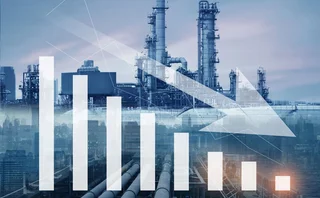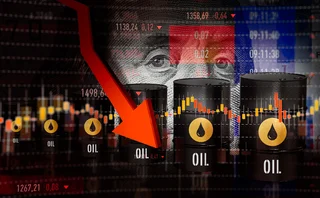Crude surpasses $123 as Democrats blame speculators
West Texas Intermediate (WTI) closed up $1.69, or 1.4% from the previous record close of $121.84/bbl posted yesterday. WTI futures are nearly 100% higher than they were a year ago.
Brent crude oil for June settlement climbed $2.01, or 1.7%, to $122.32/bbl on London's ICE Futures Europe exchange. In after hours trading the contract touched a record $123.93.bbl.
A number of issues across the complex are being cited as factors contributing to crude’s record run.
An earthquake measuring 6.8 on the Richter scale was recorded off the Japanese coast, raising concerns that some of the country’s nuclear capacity may be shut down in favour of fuel oil burning power plants.
This scenario adds to a mixture of factors being touted as key price drivers, such as consistently high demand from China and India, crude's value as an inflation hedge against the falling dollar, OPEC supply restraints, supply threats in Iran, Iraq and Nigeria refinery bottlenecks in the US and the role of speculators in markets.
The latter point was taken up by Senate Majority Leader Harry Reid and Senators Jeff Bingaman, Max Baucus, Charles Schumer, Byron Dorgan, Maria Cantwell and Bernie Sanders today as they unveiled the Consumer-First Energy Act of 2008, a bill that claims to address the root causes of high gasoline prices.
One of the bill’s requirements is for the Commodities Futures Trading Commission (CFTC) to set a substantial increase in the margin requirement for all oil futures trades, contracts or transactions.
Nymex issued a statement in response. ‘In a highly transparent, regulated and competitive market, prices are affected primarily by fundamental market forces and imposing more onerous margin levels will not affect price levels,” it said
“The data consistently indicates that the percentage of open interest in NYMEX crude oil futures held by non-commercial participants (relative to commercial participants) actually decreased over the last year even at the same time that prices were increasing.”
The Exchange added that increasing crude oil margins on futures markets regulated by the CFTC would force trading volume away from regulated and transparent US exchanges onto dark unregulated venues and onto less transparent overseas markets.
At a briefing in New York Michael Cosgrove, President of Amerex Brokers LLC, a wholly owned division of GFI Group, poured scorn on the notion that speculators played a significant role in crude’s current price run. “I am unaware of any speculator who has significantly affected supply and demand in the crude market, which is the main driver,” he said.
Peter Beutel, president of energy risk management firm Cameron Hanover, said that “nothing has created as much upward pressure on food & fuel prices as the [Federal Reserve’s] ‘new transparency,’ adding that Fed’s efforts to solve the current credit crisis by lowering interest rates had sent commodity prices “into an inflationary spiral – pushing oil prices from $79 to over $120/bbl.”
In a report released yesterday led by analyst Arjun N. Murti, investment bank Goldman Sachs revised its oil price spike scenario to forecast that supply shortfalls will probably send oil to between $150 and $200 a barrel within two years.
"We believe the current energy crisis may be coming to a head, as a lack of adequate supply growth is becoming apparent and resulting in needed demand rationing in the OECD areas in particular the United States," the report noted.
More on Oil & refined products
Energy Risk reaction: Venezuela and oil sanctions
Energy Risk talks to Rob McLeod at Hartree Partners about the energy risk implications of the US’s control of Venezuelan oil
Energy Risk Europe Leaders’ Network: geopolitical risk
Energy Risk’s European Leaders’ Network had its first meeting in November to discuss the risks posed to energy firms by recent geopolitical developments
US shutdown leaves commodity traders without key data
Commodity traders are ‘flying blind’ without Commitment of Traders reports
Energy Risk at 30: Learning from the past
Energy Risk looks back at the seminal events and developments that have shaped today’s energy markets
Why Iran tensions failed to rattle markets
Despite initial fears, traders say risks were signposted and investors had deleveraged after April
Oil and products house of the year: Macquarie Group
Energy Risk Awards: Bank pioneers innovative deals in illiquid markets, taking on esoteric risk
Podcast: should negative oil prices be allowed?
Did negative oil prices signify the market was operating effectively, or that something was wrong?
Podcast: the future of retail investment in oil
Will negative prices and big losses curb retail investors’ appetite for oil futures over the longer term?







